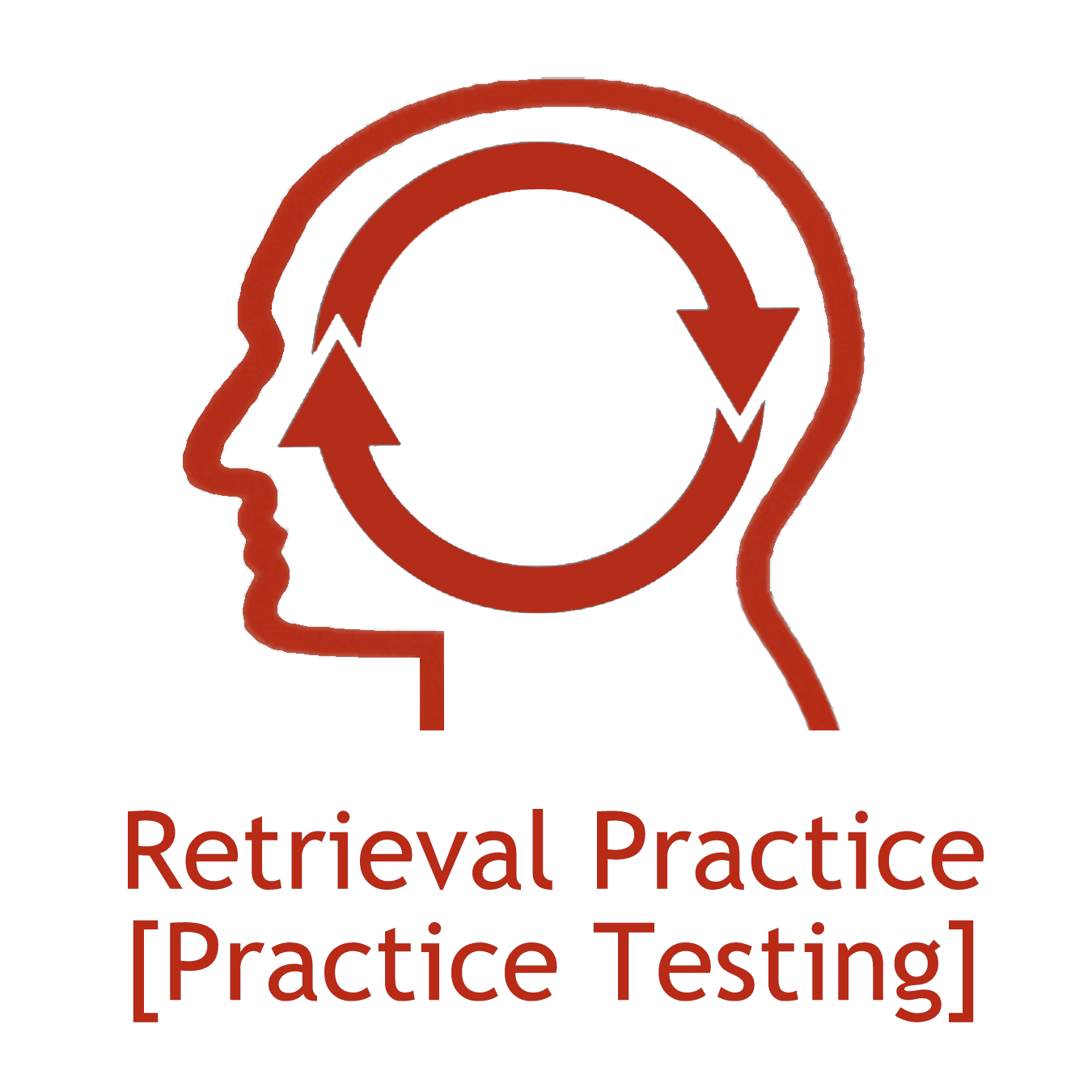Retrieval Practice
What you should be doing when studying for a course isn’t just “studying”. A large body of research has shown that simply studying materials over and over (for instance, looking over your notes repeatedly) is not the most effective way to learn. Here we outline the do’s and don’ts for one of the most effective alternatives to studying.
Don’t: simply restudy information.
One of the reasons why restudying, rereading, and reviewing are not the most effective learning strategies is because they do not involve the actual cognitive processes that exams require. Specifically, on
Learning scientists have determined that one method is especially effective at helping you retain information and successfully retrieve it later. That method is retrieval practice.
Do: practice recalling information from memory.
After you have finished reading through a set of lecture slides, your notes, or the textbook, put it aside. Without looking at those materials, try to remember what you have just learned, either mentally or by writing it down. In effect, you are giving yourself a practice test. Some information will readily come to mind, and some information might not. Some materials might be completely understood, and other materials might not. After you have recalled as much as you can remember, go back and check the course materials. Determine if the information that you recalled was correct and examine those portions that you did not fully recall or did not fully understand. Then, repeat the process.
If you have completed those steps, then you have just used retrieval practice. Retrieval practice involves recalling to-be-remembered information from memory. Retrieval practice – by itself and especially when accompanied by a subsequent check of course materials (as in the example just discussed) – is one of the most effective learning methods discovered to date. In fact, over 200 studies from over a century of research have demonstrated benefits of retrieval practice on memory.1,2 That benefit is commonly known as the retrieval practice effect or the testing effect
How do I use retrieval practice?
There are many ways to practice retrieving information. It can be as simple as the example discussed above – put your course materials aside and simply try to recall information mentally or on a sheet of paper. Other ways to use retrieval practice include:
- Use practice tests – make your own practice questions, make and share questions with a study partner, use practice questions provided by the instructor or found in a textbook, or find questions from online sources (for example, Quizlet).
- Make flashcards – this commonly involves writing on index cards (questions on one side, answers on the reverse). You can also make flashcards on a computer and print them out or use flashcard software systems.
- Use a copy-cover-and-check method – simply cover your lecture slides, attempt to recall, and then uncover to check. Like the method discussed in an earlier section of this page, this method has the advantage of requiring little-to-no added work before you start retrieval practice.
If you know the types of questions that will be on the course exam, it can also help to perform retrieval practice using similar types of questions or to focus on retrieving the same types of information (such as names, dates, or examples, depending on the course). If the course exam involves application questions (for example, identifying how a concept matches with a given hypothetical example), then consider incorporating application questions into your retrieval practice activities.
Overall, by using retrieval practice, you are increasing the likelihood that you will successfully remember relevant information during your next high-stakes exam
Downloadable Resources
- How to Study Less and Remember More [PDF], includes summary of how to use retrieval practice
Further Resources
How-To Video
How to Use Retrieval Practice
- How-To Poster on Retrieval Practice by the Learning Scientists
- How-to Video on Retrieval Practice by the Learning Scientists
- How to Video on Retrieval Practice by the University of Arizona Learning Initiative